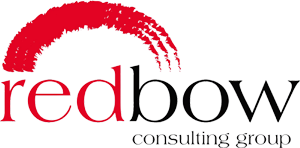
Aiming for Perfection in Pharma - Redefining Marketing Excellence
In an era of rapid change and "interesting times," the traditional approach to marketing excellence in the pharmaceutical industry requires a radical rethink.
Picture this: Katie, a pharma marketer, hurriedly copies last year’s SWOT analysis into her annual marketing plan while her inbox floods with urgent emails. One catches her eye – a company-wide “Marketing Excellence” initiative titled "Our Way." Excited but apprehensive, she downloads the attachment, only to find a 132-slide deck filled with dense text and convoluted flowcharts. Katie’s enthusiasm turns to dread.
Her experience is not unique. Marketing excellence programmes often rely on centrally designed templates, remote rollouts and rigid timelines. While efficient on paper, they often fail to address the realities of marketers’ day-to-day responsibilities or deliver the transformative change they promise. So, how can pharmaceutical companies redefine marketing excellence to ensure it truly benefits their teams and, ultimately, their customers?
What Is Marketing Excellence in Pharma?
Marketing excellence, at its core, is about creating and exchanging value with customers. As Philip Kotler famously stated, marketing is “a social and managerial process by which individuals and groups obtain what they want and need by creating and exchanging products and value with each other.” In the pharmaceutical industry, this means understanding what value looks like to clinicians, payers and society – and delivering it effectively.
Value is inherently subjective and constantly evolving, making it a challenging yet vital pursuit. A successful marketing excellence programme must enhance the organisation’s ability to create and exchange this value, aligning processes, concepts and orientations across the business.
The Three Pillars of Marketing Excellence
To redefine marketing excellence, pharma companies must focus on three key pillars:
1. Process:
Processes are the backbone of effective marketing activity. However, they must be more than rigid frameworks. Processes should be adaptable, user-friendly and designed to support rather than constrain marketers. Centralised templates and timelines are helpful tools, but they should serve as guides, not mandates.
2. Concept:
Concepts originate from deep thinking, quality research and asking “Why?” Effective marketing concepts stem from understanding the root causes of customer behaviours, trends and needs. Pharma companies must prioritise creating a culture of critical thinking and creativity, encouraging marketers to develop actionable insights that drive competitive advantage.
3. Orientation:
Orientation refers to the attitudes, beliefs and feelings that guide individuals’ actions. Changing orientation requires more than imparting knowledge – it demands a shift in mindset. For pharma marketers, this means cultivating a customer-centric approach that permeates every function of the organisation.
Why Process Alone Isn’t Enough
Many marketing excellence programmes focus exclusively on process, rolling out templates and tools without addressing concept or orientation. This approach overlooks the importance of engaging people at every level of the organisation. As John Kotter’s renowned 8-step change model emphasises, successful change requires:
A clear sense of purpose and urgency.
A compelling vision of the future.
Strong leadership and communication.
Alignment with day-to-day roles and responsibilities.
Organisational readiness to embrace new ways of working.
Without these elements, even the most sophisticated processes will fall short.
The Path to True Pharmaceutical Marketing Excellence

For pharmaceutical companies to achieve marketing excellence, they must adopt a holistic approach that integrates process, concept and orientation. Here are key strategies to consider:
1. Start with Purpose:
Clearly define why the initiative is needed and what it aims to achieve. This provides a strong foundation for engagement and commitment.
2. Align Training with Real Needs:
Timing matters. Training should coincide with marketers’ immediate needs, ensuring that knowledge is applied and retained effectively.
3. Encourage Critical Thinking:
Allow marketers to explore the “why” behind customer behaviours and market trends. Provide tools and forums for collaborative problem-solving and idea generation.
4. Embed a Customer-Centric Mindset:
Marketing excellence is not confined to a single department. It’s a mindset that should be embraced organisation-wide, with every role contributing to delivering value to customers.
5. Engage Leadership:
Ensure that leadership teams actively support the initiative, modelling the desired behaviours and providing guidance to their teams.
6. Measure Success Holistically:
Evaluate the impact of marketing excellence programmes not just by the completion of templates but by their ability to drive meaningful customer engagement and deliver measurable business outcomes.
A Holistic Approach to Marketing in Pharma
As pharmaceutical companies navigate the challenges of the modern market, marketing excellence must evolve beyond a set of templates and processes. It’s about creating a culture that prioritises value creation, deep thinking and customer-centricity. By taking a holistic approach that integrates process, concept and orientation, pharma companies can build marketing excellence programmes that truly make a difference – for their teams, their customers and their business.
For more insights on achieving marketing excellence in the pharmaceutical industry, contact Redbow Consulting. Our expertise can help you design and implement programmes that drive real change and deliver lasting value.

